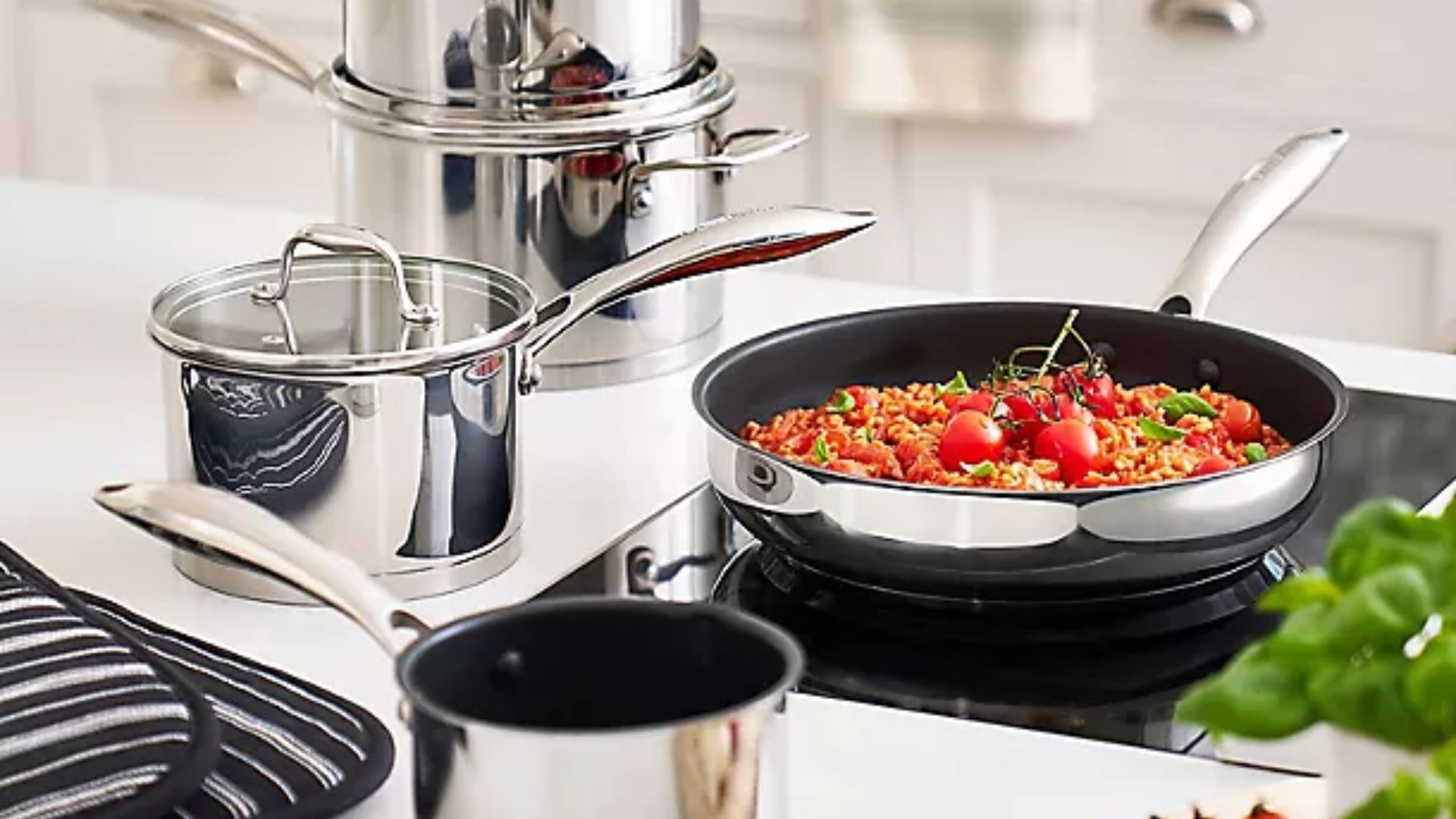
It's rare to find a stainless steel pan set for less than £200. It's even more rare to find a set that looks as chic as the Lakeland 5-piece Stainless Steel Pan Set for that price. It ticks a lot of boxes, but is it as practical as it is pretty?
If your old set has seen better days, it might be time to upgrade to a fresh new set of stainless steel pans. If you're more of an everyday cook than an elaborate chef, you won't want to spend more than £500 on your pots and pans. And you don't need to either.
I've been testing the best induction pans and the best stainless steel pans on the market in search of the best set for your kitchen. As an affordable upgrade, Lakeland's pans more than deliver. Here's more information on what I found with my hands-on experience.
Specifications
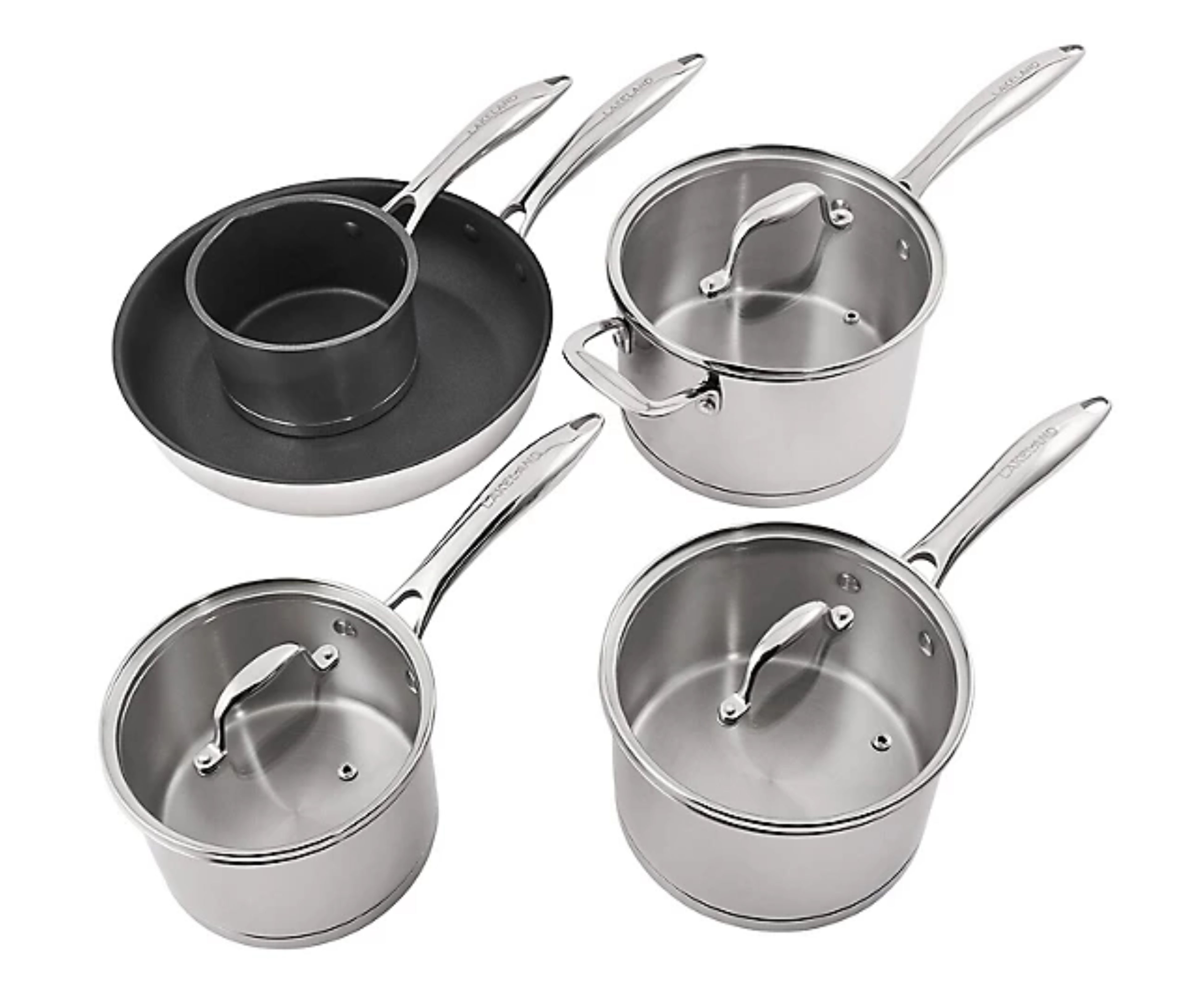
What's in the set?
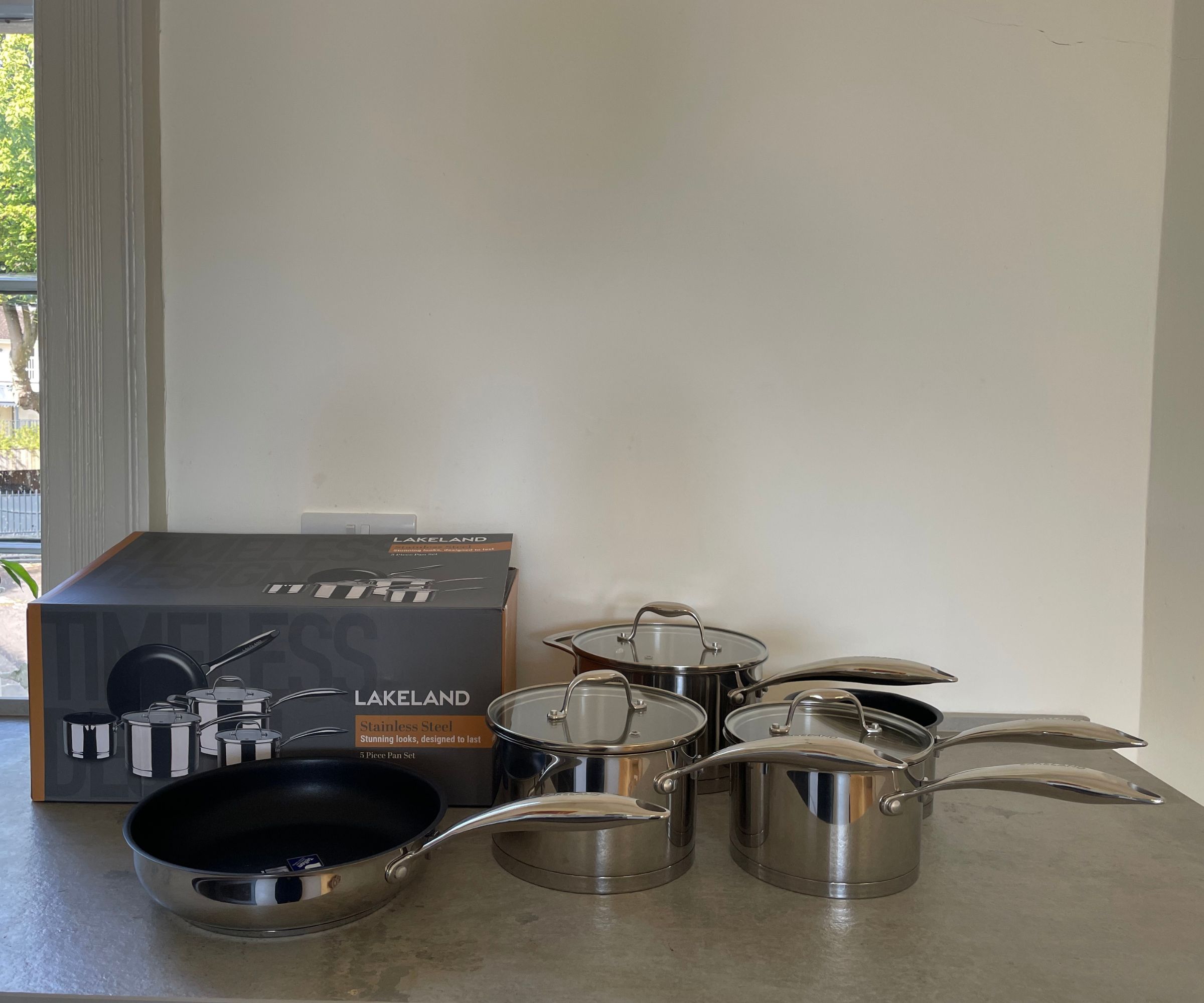
You can get pan sets with a range of components, but five pans is about the average amount. It's probably more than a single person would need, but, if you're cooking a roast, you'll have every pan active.
The five different pans all come with their own uses. The frying pan is one of the stars of the show. It has a 24cm radius, which is big enough for a crepe, or three American pancakes. It's lined with 3-layers of non-stick coating, making it even easier to keep your food moving with less water.
The milk pan is 14cm in diameter. Again, it's lined with a nice non-stick and it has some useful pouring spouts on either side of the pan, perfect for milky drinks, soups, and porridges.
The other saucepans in the set are 16cm, 18cm, and 20cm in diameter. This covers a good range of capacities, from 1.9L to 3.7L. They all have sturdy handles and the 20cm pan also has a handle on the other side as an extra support. They all come with glass lids, a steam hole, and a neat lid. Whilst they are stainless steel, the bases are encapsulated aluminium, which is generally used for faster, even heat distribution. I wanted to put all these to the test though.
Who would it suit?
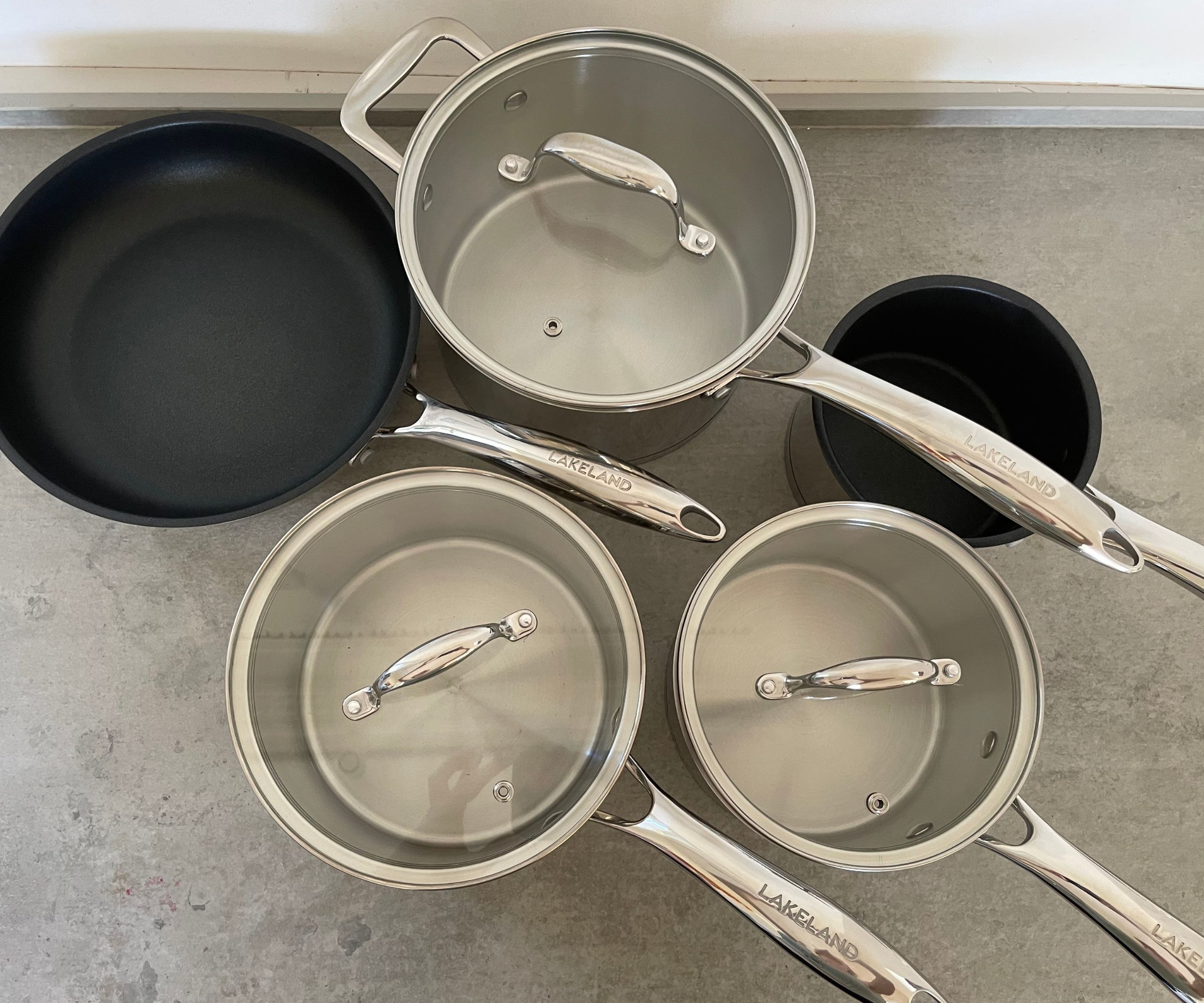
If you're buying your first set of pans or looking for a budget, everyday option, the Lakeland 5-Piece Stainless Steel Pan Set is a great option. It's definitely at the cheaper end of the spectrum, but the price tag isn't so low that it raises suspicion. Also, all you have to do is pick them up to feel how well-built they are. The slim handles look chic and stylish, but they aren't the most comfortable to hold for a long time. Plus, they do heat up quite quickly, even on induction hobs.
I could see small families really suiting these pans. They're good for even smaller homes, but I'm not sure you'd get much use out of every single pan and, they might also be quite tricky to store. You might think that they're stackable, but I wouldn't recommend it, because of the lids, as well as the non-stick, which might scratch.
It's also worth noting that the luxurious weight of the pans, whilst reassuring, does make the bigger, fuller dishes quite hefty. If you know you've got weaker wrists, it's worth looking at smaller, lighter options, such as the M&S 5-Piece Pan Set. Also, each handle is branded with Lakeland's name. I don't mind that, but some people don't like to be advertising boards.
Unboxing
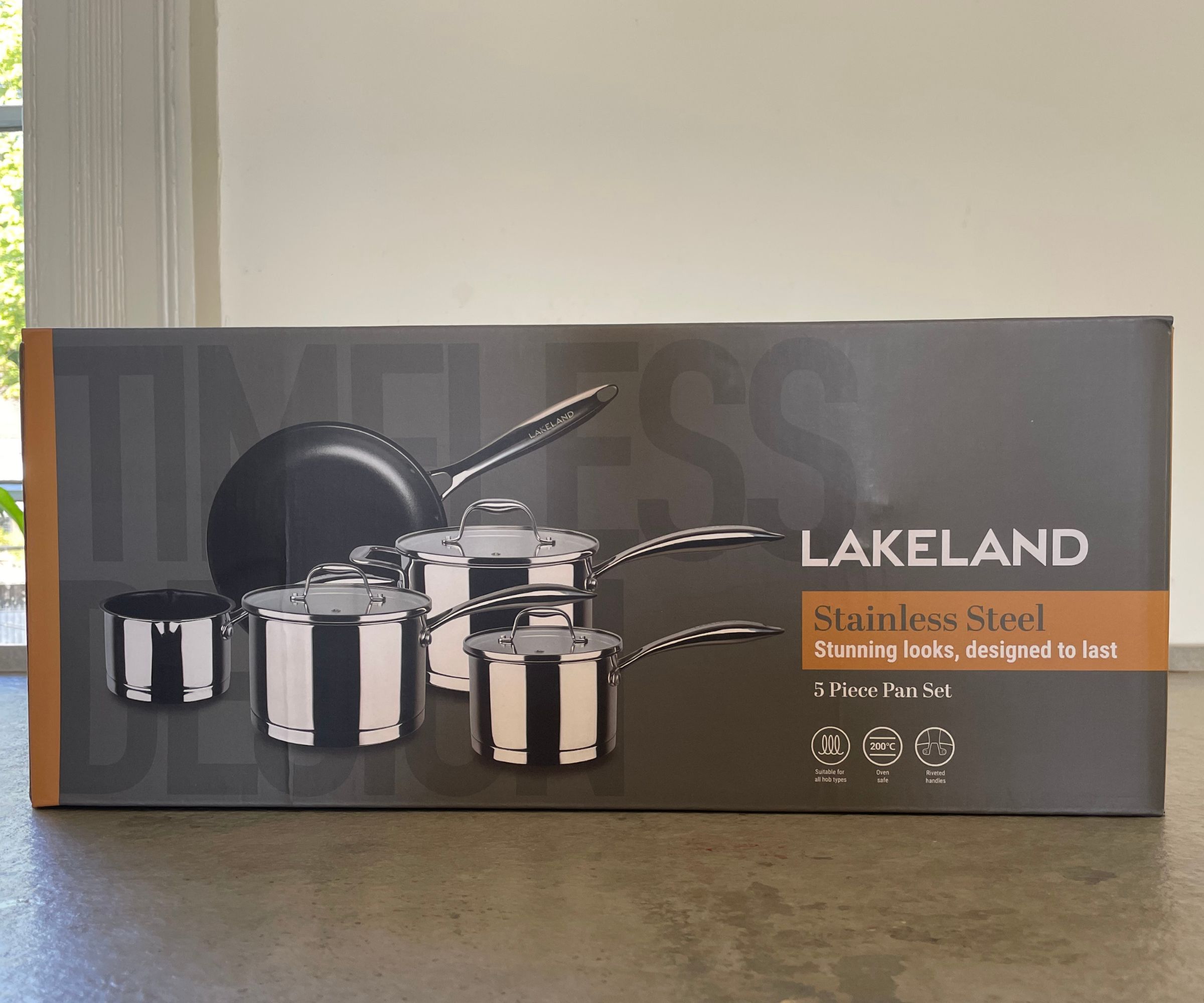
As I've mentioned, the Lakeland 5-Piece Stainless Steel Pan Set has the weight of a premium collection. This means that the box that they arrive in is hefty. It's quite big too, but so much that the box is hard to lift onto the worktop or carry up the stairs.
Lakeland packaged each pan carefully, ensuring that no products arrived scratched or damaged. Whilst a large part of the packaging is recyclable, there was also a fair amount of soft plastic. You can recycle these at some supermarkets (Sainsbury's and Waitrose are particularly good for their soft plastic recycling), it is some extra work.
The base of both non-sticks had stickers explaining that they were made from Platinum Plus Teflon, which is scratch resistant. The stickers are easy to peel up and they don't leave any glue behind. Nonetheless, I gave each pan a good rinse with warm, soapy water and a soft sponge to ensure no dust from transit was in my pans.
What is it like to use?
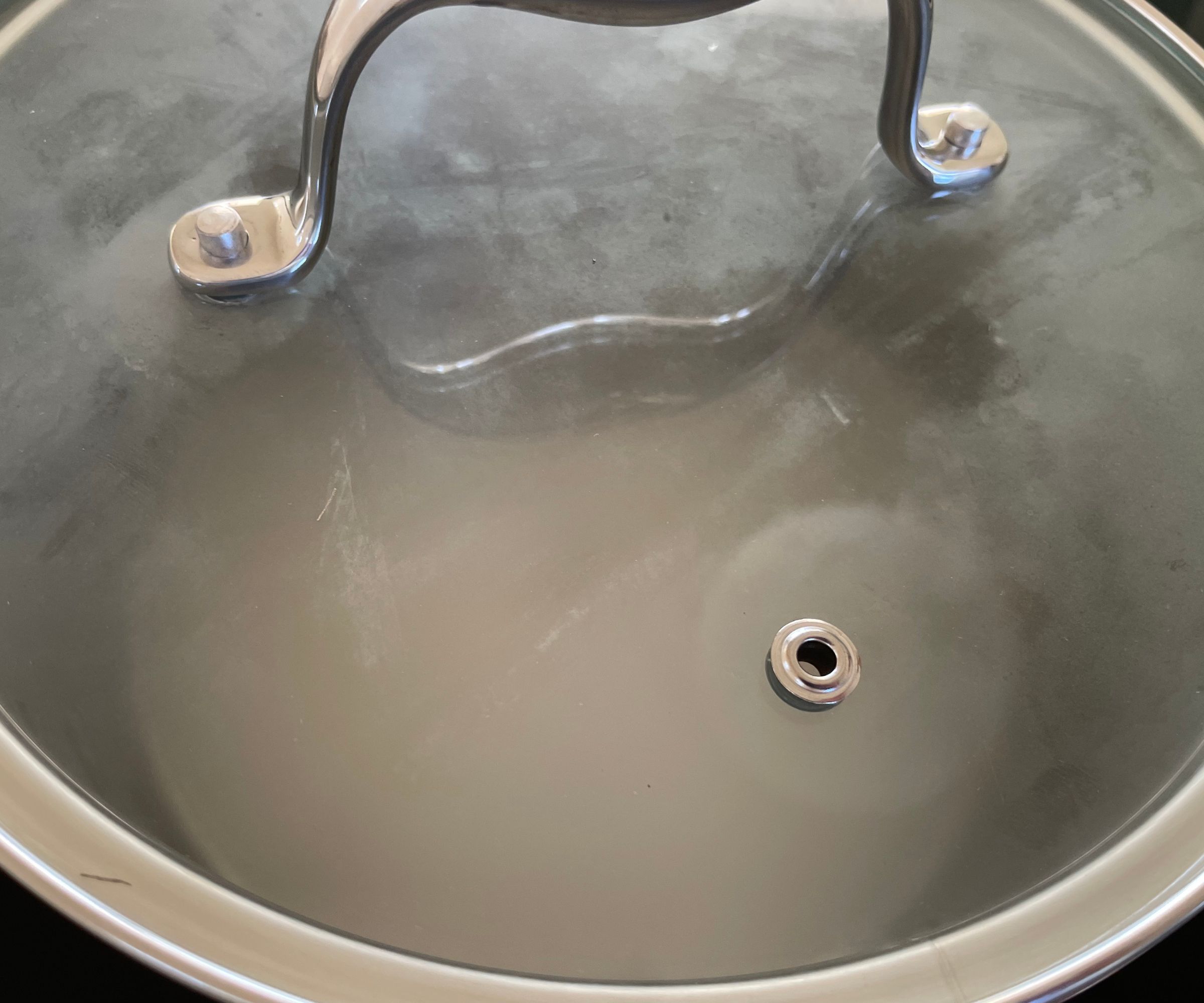
I loved the look of these pans. The way the handles are shapes is really stylish, the stainless steel has a wonderful shine to it, and the flat lids are really sleek. I was keen to get these tested to see what they could cook up, so, without further ado, let's get into the tests.
Test 1: frying pan
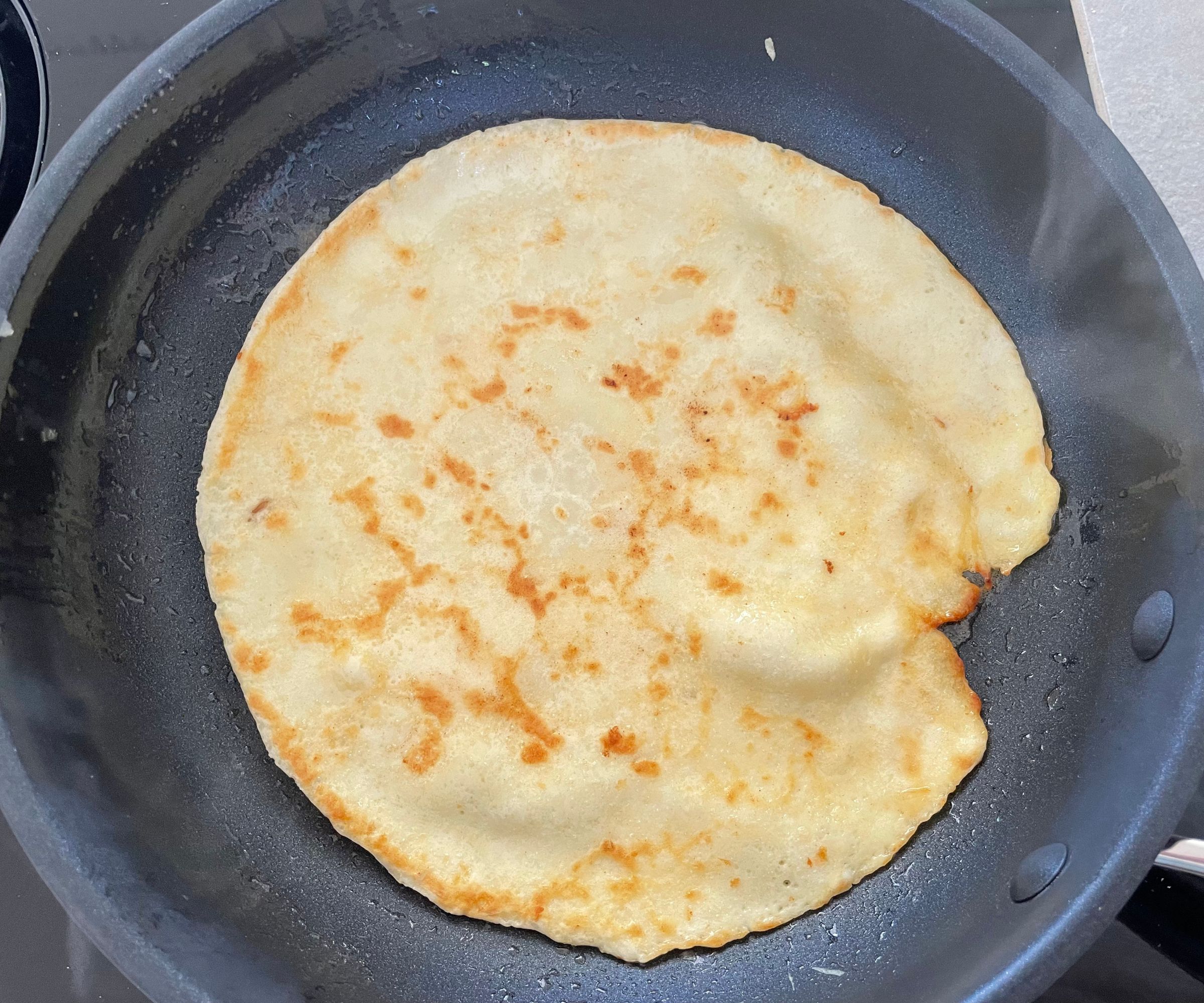
Frying pans aren't always included in pan sets, mostly because people can be very particular about what they like. So, it's always a little risky to assume that people will like the pan that they're given. Luckily, Lakeland's 24cm frying pan does a wonderful job of frying onions, making pancakes, and more. It's a great option for any family home.
The first test that I put all my frying pans through is onions. Even though Platinum Teflon is non-stick, they still recommend adding some oil to the pan to avoid sticking.
I drizzled olive oil over mine since the sprays can damage non-sticks. It heated up quickly, so I added a large white onion, finely chopped to the pan. Again, even though the non-stick is scratch-resistant, you'll want to use plastic or wooden cooking utensils to extend the life of your pans as much as warranty. If you've scratched them with metals or a knife, you'll void the 25-year warranty.
The onions browned and turned tender really nicely. I think the pan perhaps heated up a little too quickly though. I use the same heat on all my pans and, whilst the onions turned a beautiful golden brown colour, I think they could have done with a slightly slower cook. Don't get me wrong, they were still delicious, but I've made better with other pans.
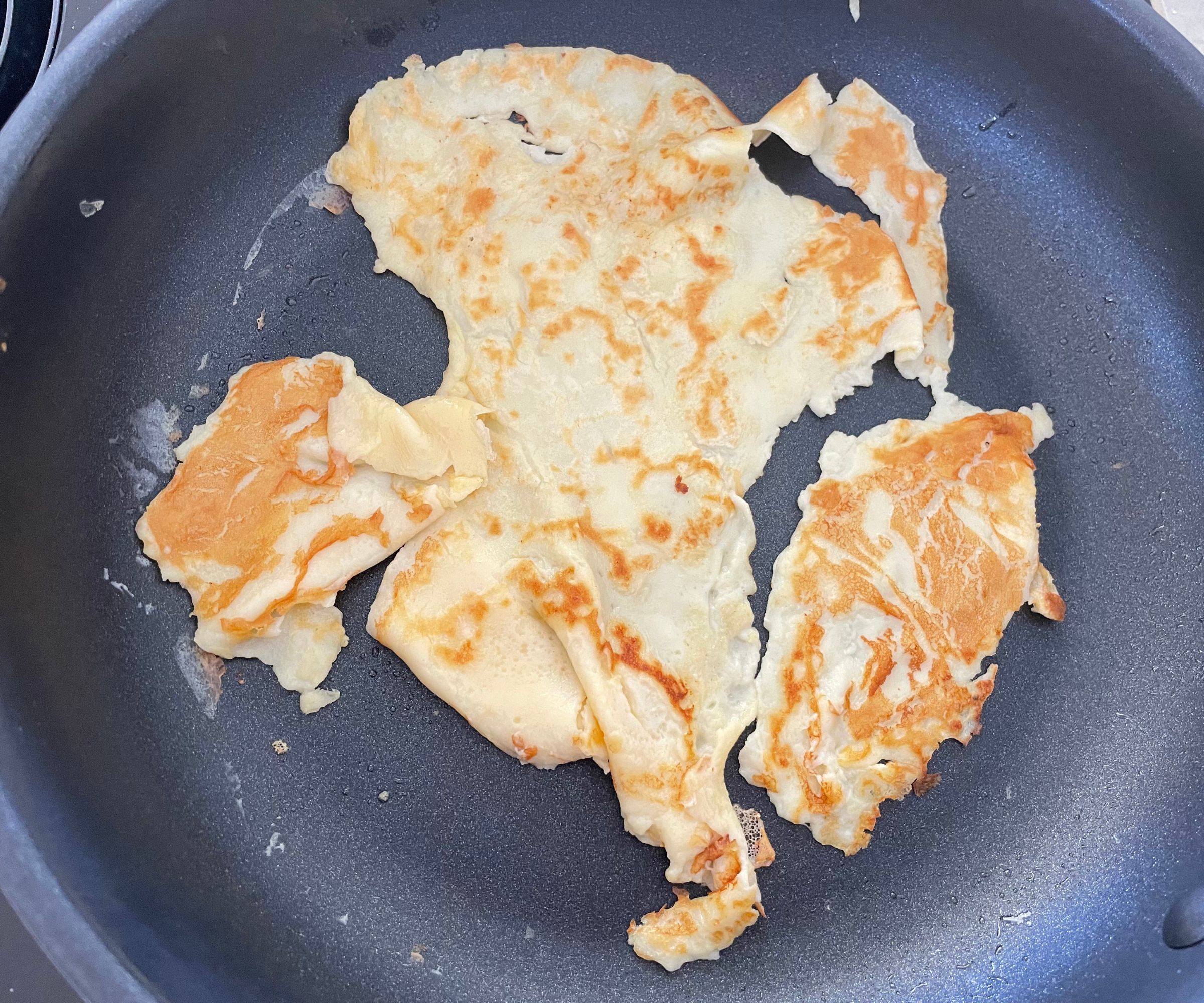
The speed worked in favour of the Lakeland Frying Pan when I was on my second test though. I always do a pancake test with our pans, since you can see how well the heat distribution is by looking at the brown spots. You can see that this offered a really even heat across the whole base of the pan. When it came to flipping the pancake, I felt that the pan was pretty hefty. I could still flip the pancake, but it was easier with other options.
On my first attempt, the pancake stuck in the centre. However, when I tried again and again and again, all the other pancakes were fine. My end results were consistently good. The pancakes had some nice crispy bits, and brown speckles across it. They were cooked right through and pretty quickly too.
Test 2: milk pan
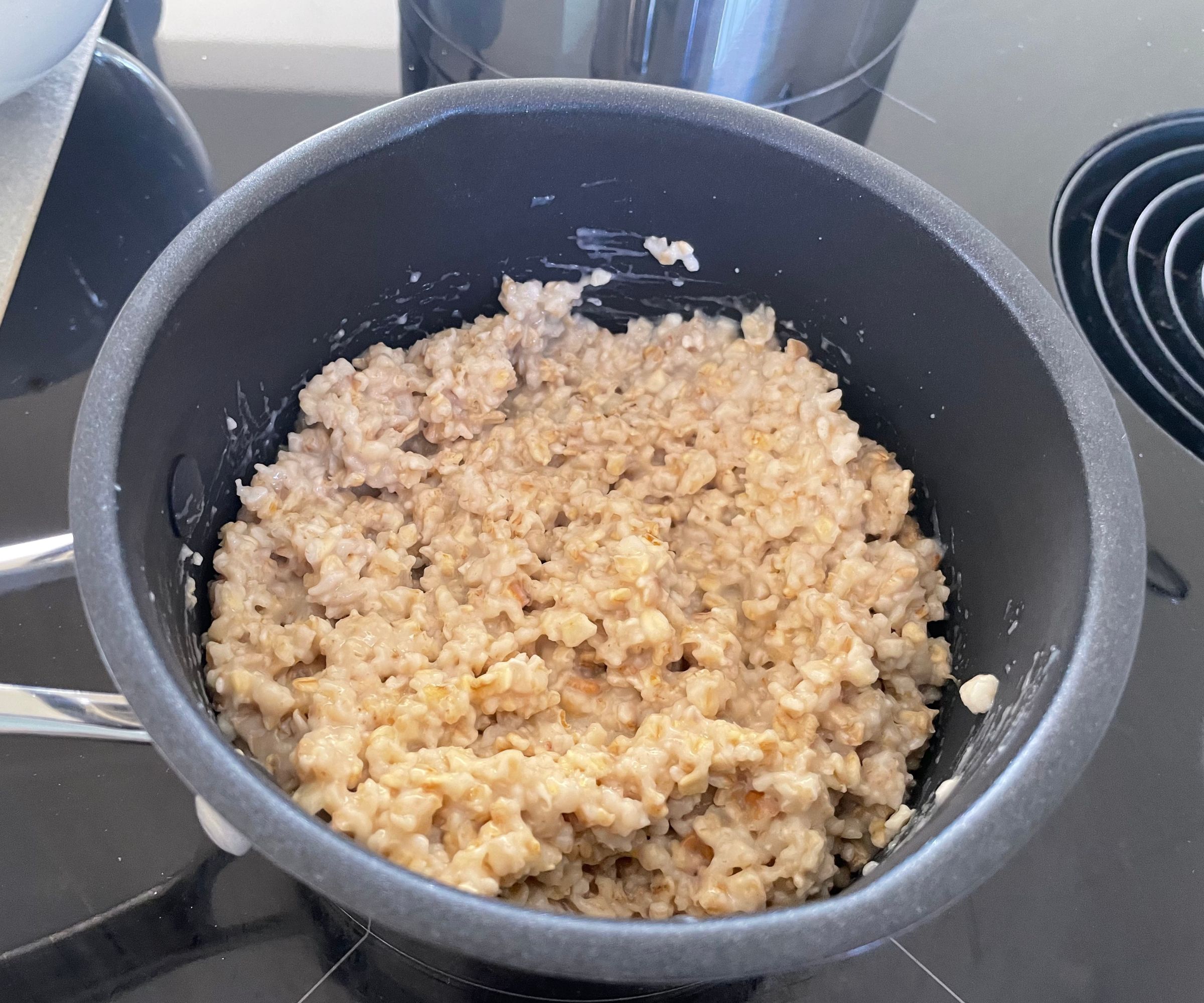
Milk pans are also, rather surprisingly, not a core member of every pan set. I actually think that they're one of the most useful things to have in your kitchen though, especially if you're often cooking for one or two.
Not all milk pans have a non-stick lining, but I found it really useful on the Lakeland set. I warmed milk, boiled an egg, made porridge, and warmed up soup in this and they were all perfect.
I always think that porridge is a great test of a pan's heating ability and the non-stick. I'm a bit of a snob about my morning oats, but I got some great results in the milk pan. They cooked through and were soft, but still with a little bite. The best part was, I could get all the scraps out of the pan, because the non-stick made it easy to scoop out into my bowl.
When I made soup and my boiled egg, the pouring spouts on either side of the pan came in really handy. All of the set has a crisp lip on the edge of the pan, but the dips on either side gave me a really precise pour. This wasn't too heavy, probably because it's small, but I could fit three eggs in the pan, and warm up enough milk for three servings.
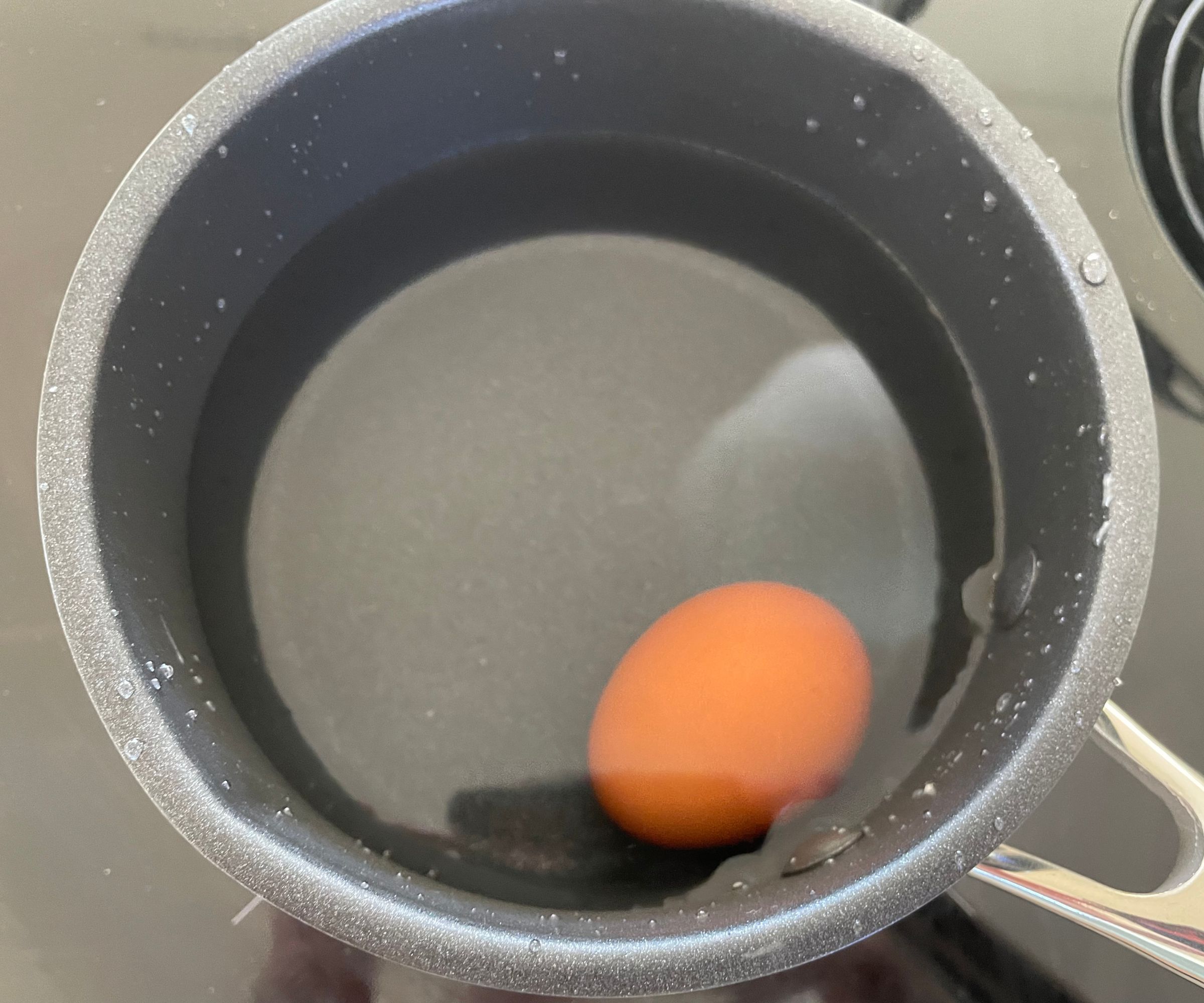
Test 3: the saucepans
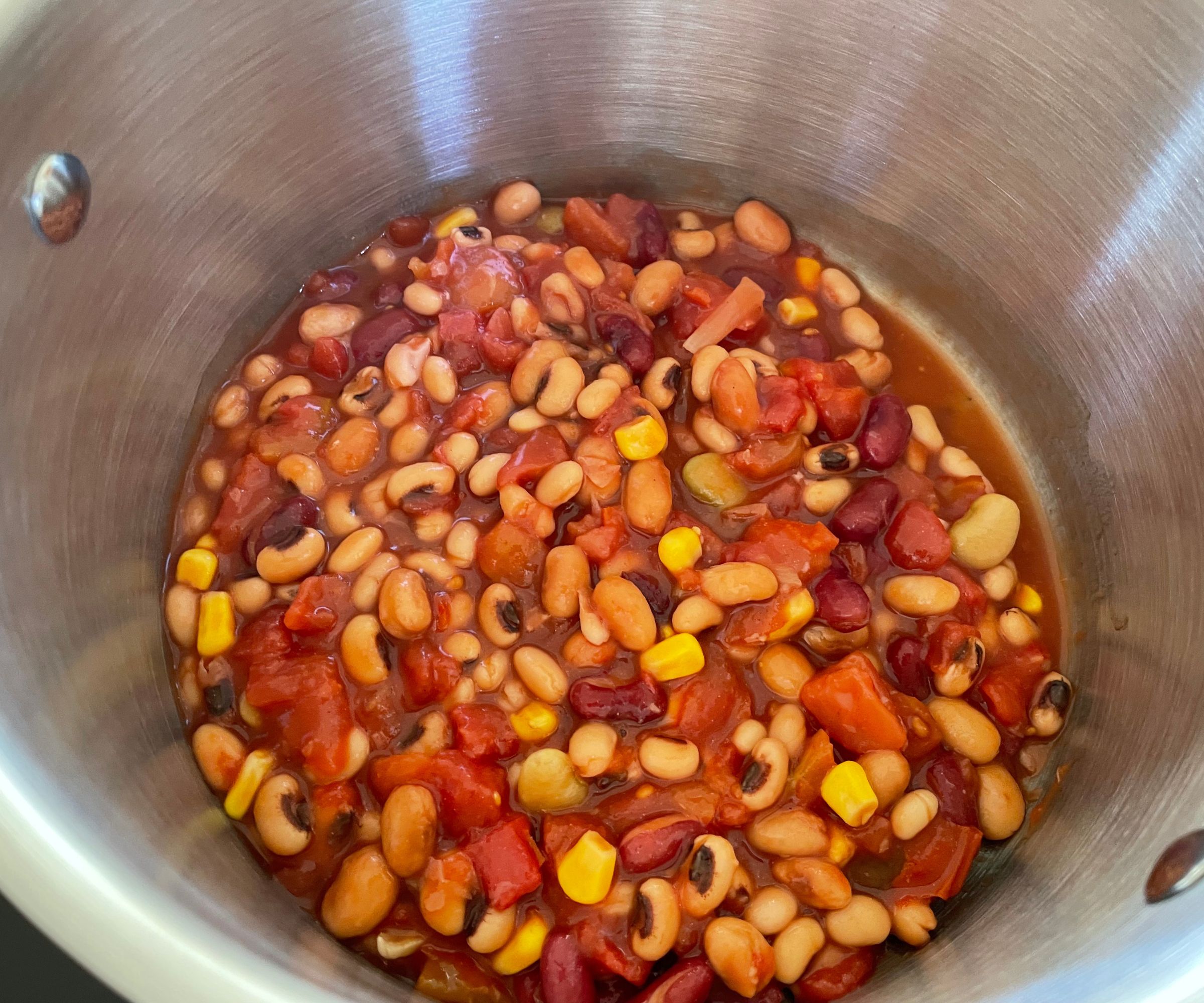
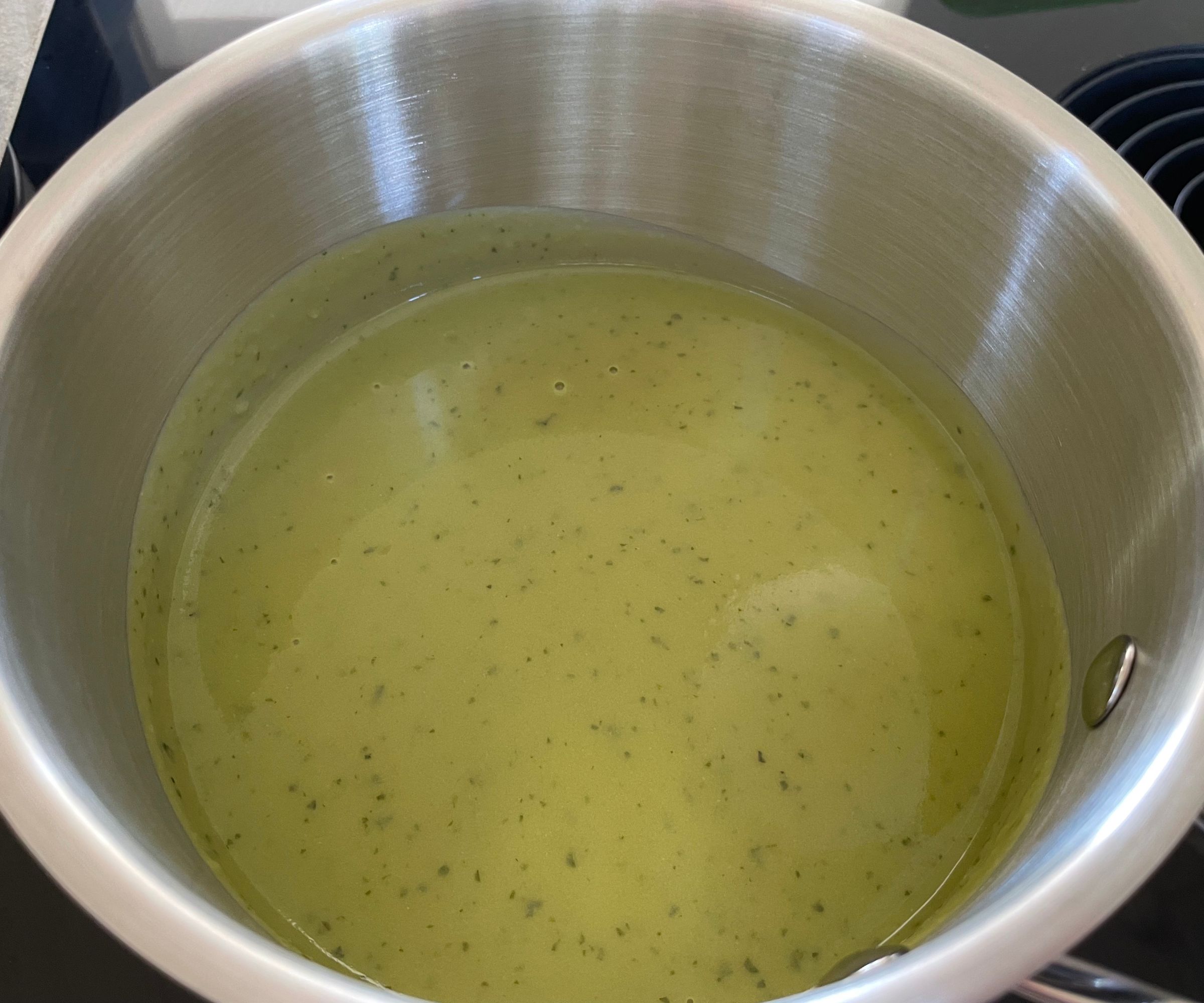
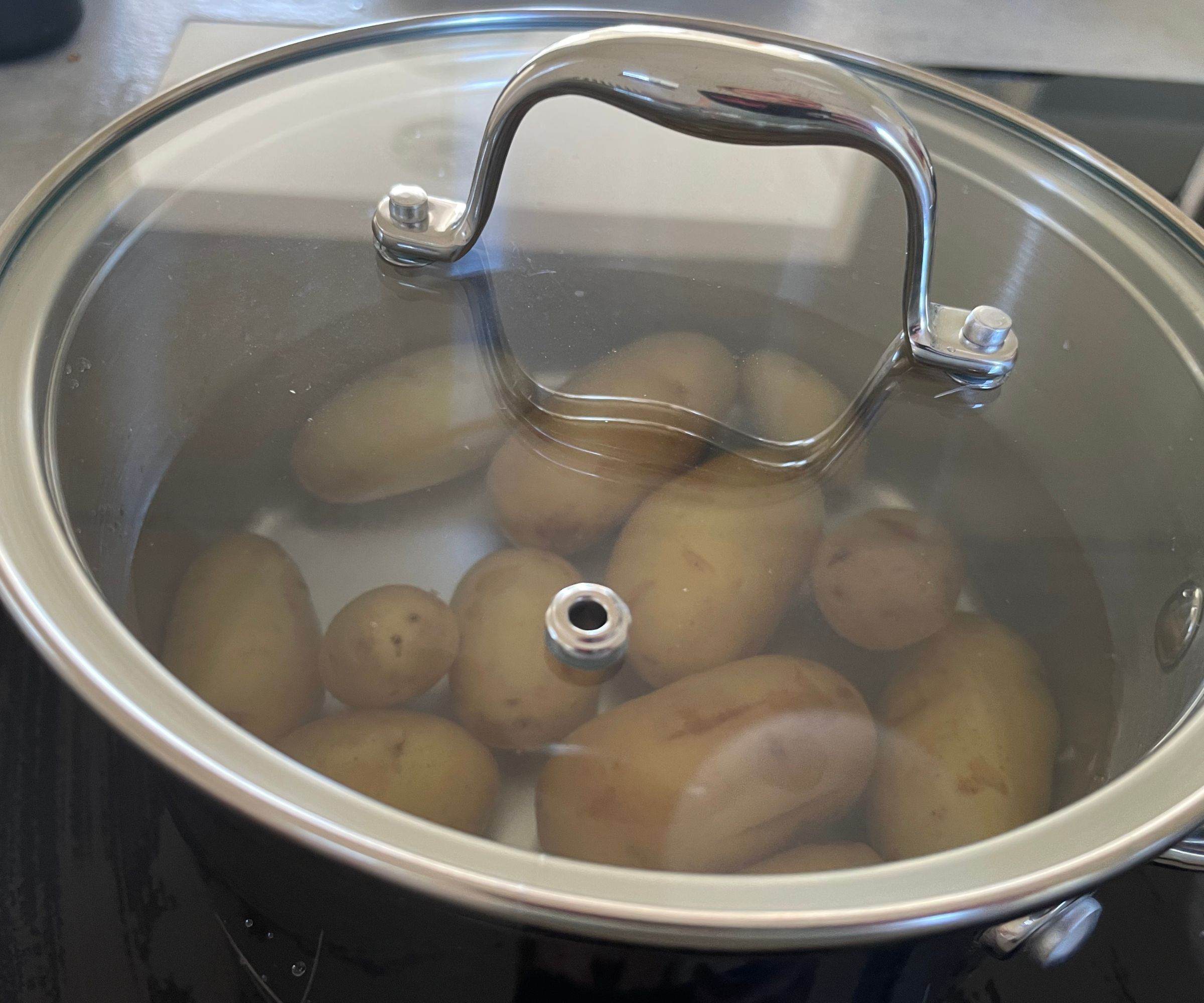
All three saucepans have similar functions, just for different capacities, so I gave them all similar tests. I made a bean casserole, soup, curry, boiled potatoes, and mash. The deepest pan had high enough sides for me to make some jam in too, so I gave that a whirl. I didn't get any spitting or mess around the pan and, surprisingly, the jam didn't catch. The biggest shame was how hot both handles on the large pan got. It's really useful to have two handles on the big pan, because it does get really heavy, but these also were too hot to hold, even after six minutes of boiling.
True to form, the other saucepans transferred heat really quickly. This was great for speedily boiling water for pasta and potatoes, but it meant that I needed to opt for the lowest heat possible on my slow stews and casseroles. The glass lids were easy to place on and see-through. Plus, the steam hole stopped them from bouncing around, causing chaos on my hob. Again, the handles on them did get hot, so keep some oven mitts nearby too.
Are they easy to clean?
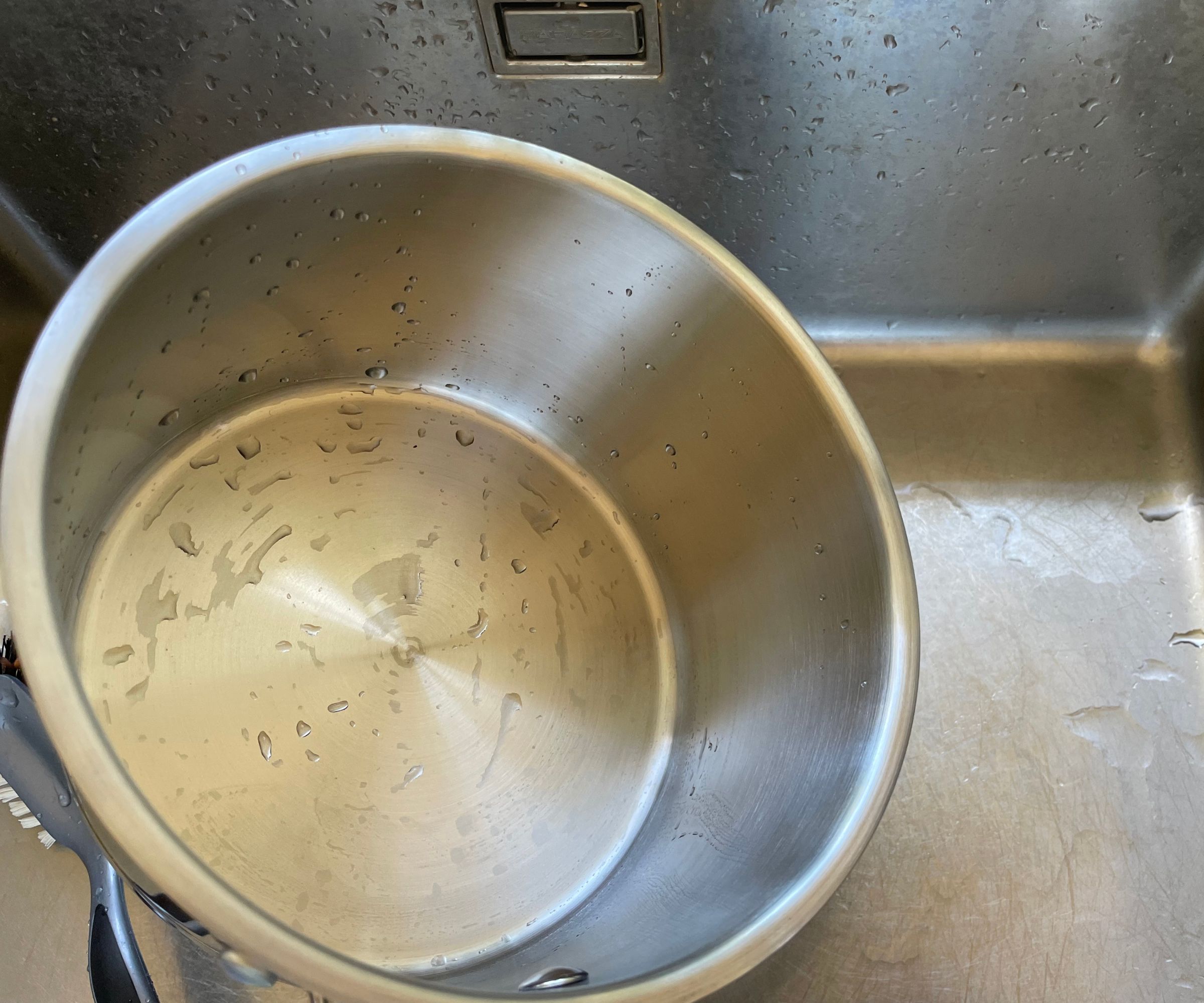
Even though I cleaned all of these by hand, they are dishwasher safe. Whether you've slow cooked, stewed, or fried in them, you can load them in, set a wash running, and get sparking clean pans out every time.
I wanted to see how easy it was to wipe away where my onions had caught on the base of the saucepans, and where my porridge had stuck to the sides of the pans. It turns out, cleaning these is really easy. Superficially, my sponge just wiped away all the grease, burns, and sauce on the pans. I gave them a proper wash with some Ecover and hot water, and it was really easy. They cleaned up really nicely.
How do they compare?
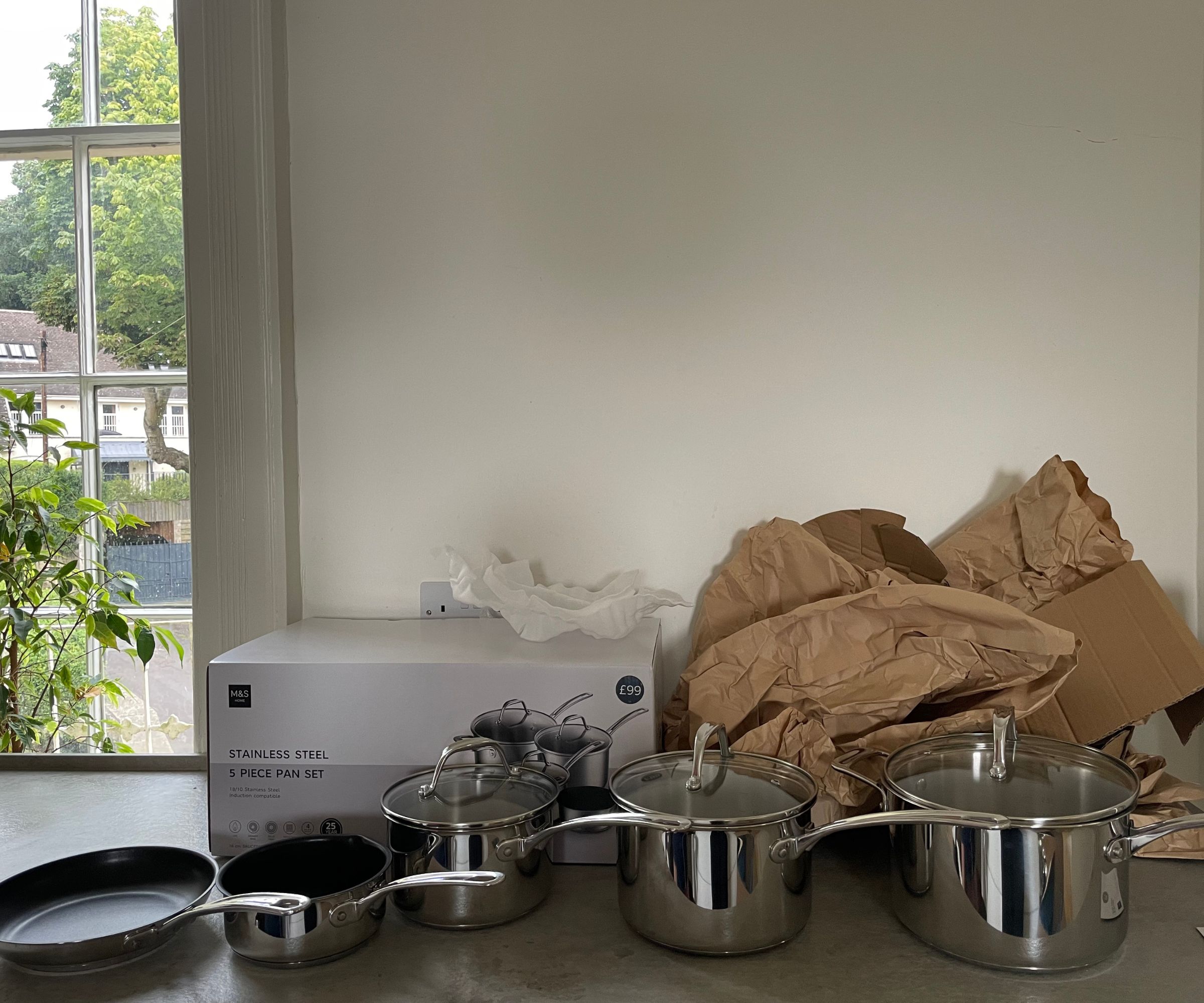
I tested the Lakeland 5-piece stainless steel pan set alongside the M&S 5-Piece Stainless Steel Pan Set. At first glance, the two are almost identical, except that the M&S set is almost half the capacity and, therefore, half the price.
All of Lakeland's pans feel more premium. The handles are more elegant, sturdy, and weighty. Whilst this works to their advantage for first impressions, it can be a hindrance as they fill up. The largest Lakeland pan was a lot to carry when it was full of water and potatoes, whereas the largest M&S pan was very manageable.
The other key difference, aside from size and price, is the composition. M&S's non-stick is ceramic, whereas Lakeland's is Teflon. You'll need to be more careful with Lakeland's coating, especially when using oil sprays and metal stirrers. If you damage them, you can't touch them again. However, this does come with a 25-year guarantee (which is 15 more years than the M&S).
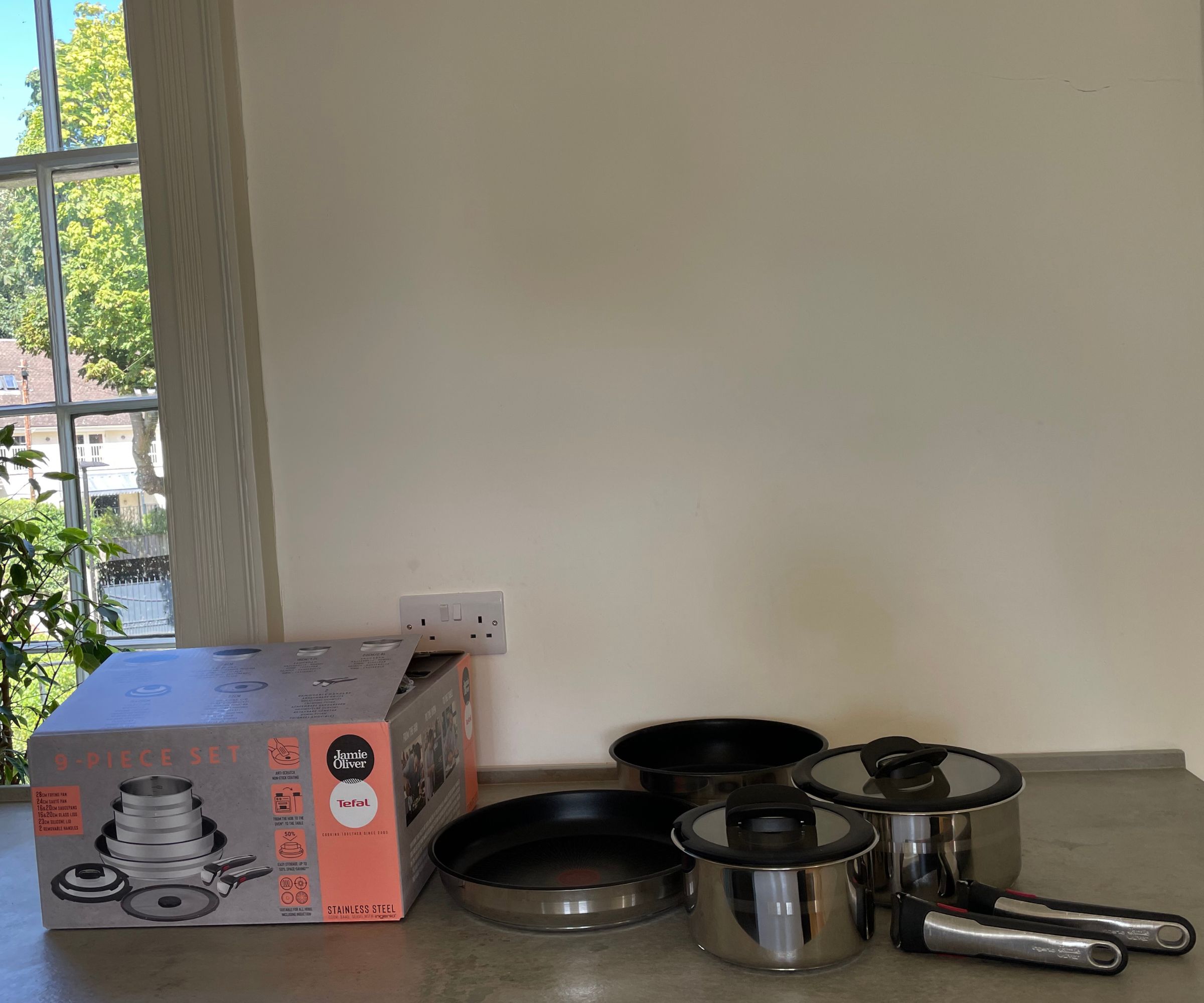
If you feel like investing a little more in your cookware, I loved testing the Tefal Jamie Oliver Ingenio collection. These are just another £40 and they're easier to store, and a dream to cook on. The removable handles aren't for everyone, but they're easily my favourite stainless steel pan set.
Should you buy it?

If you want a simple, elegant, everyday set of pans, look no further than Lakeland. These breezed through my tests, with only a few hitches. My biggest concern is the weight of the bigger pan, but, if you know you've got potato carrying arms, don't let that put you off these pans. They're a great set for a first home.
How we test
At woman&home, we take our tests seriously. I'm the person who does all of our testing for homeware, so I put every set of stainless steel pans through the same process. I start by making notes on the unboxing and aesthetics of every set and then I'll drill down into the details and what a day-to-day encounter with these pans look like.
I have a different test for every pan. I make porridge and boiled eggs in a milk pan, to test how quickly the pan can boil water and how evenly heat is distributed across the pan. It's also a great way to look at the non-stick (if there is any) on the pan.
Next, I test frying pans on pancakes and fried onions. The fried onions should be cooked right through. They should look golden brown with some caramelising on the edges. The pancakes should be also cooked right through, with even brown spotting across each side. It's a great visual indicator of the heat transfer across the pan, but when I flip the pancake, I get a good idea of how robust the pan is too.
The saucepans often come in different shapes and sizes, so I run a few tests across them. I'll make soups, stews, curries, boiled potatoes, and jams in them. I'll test the depth and tidiness of each pan, assessing whether they spit and make a mess. I'll check that, when full, they're not too heavy and that the handles don't get too hot. Naturally, I also check heat transfer across each dish, making sure that the pans are nice to cook with.
After all that, I have a washing up session. I'll put the pans through the dishwasher as well as washing them by hand, so you'll know what each method is like. Then I'll compare them to similar pans on the market. I've tested most of the best stainless steel pans on the market, so I can directly compare my personal experiences as well as any objective statistics.
Finally, I come to a conclusion on who the pans are well suited to, whether they're good value, and whether I think you should buy them. By this point, I'd like to think that you know everything you could possibly need to to make an informed decision about which pans to buy.







